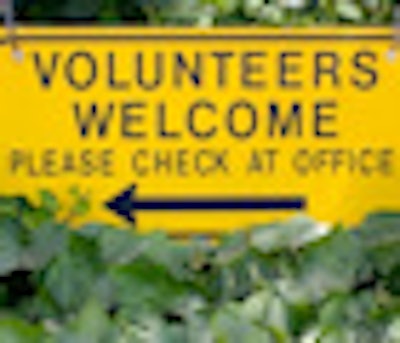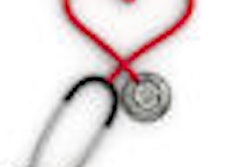
A bill introduced to the U.S. Congress in November would make it easier for charitable programs such as Donated Dental Services (DDS) to provide necessary dental care to low-income children and adults with serious medical conditions.
S.1878, the "Coordination of Pro-Bono Medically Recommended Dental Care Act," was introduced November 16 by Sen. Robert Menendez (D-NJ). The bill would create a grant program that will support national dental programs such as DDS to coordinate medically recommended dental care for these patients.
The care would be provided by volunteer dentists at no cost to patients with medical conditions such as diabetes, cancer, autoimmune disease, and kidney disease or who need heart or joint replacements or transplants.
“This is socially responsible legislation.”
— Larry Coffee, DDS, founder, Dental
Lifeline Network
"This is socially responsible legislation," said Larry Coffee, DDS, founder and CEO of Dental Lifeline Network (formerly the National Foundation of Dentistry for the Handicapped), an ADA affiliate that oversees the DDS program. "It will help states where Medical dental services are not available to adults, so it is very fiscally responsible legislation as well."
The ADA estimates that the $2 million grant investment in this bill will return roughly $13 million in medically necessary, pro bono dental treatment, and help 5,000 Medicare and/or Medicaid beneficiaries, according to an ADA action alert urging members to write their senators in support of S. 1878.
Medicare does not cover routine dental services, and in the last few years all but a few states have eliminated or significantly reduced dental coverage for Medicaid-eligible adults. Untreated dental disease can make it impossible to treat serious medical conditions that are covered by Medicare or Medicaid, but the Centers for Medicare and Medicaid Services has no authority to cover services that support the provision of pro bono, medically essential dental treatment, the ADA noted.
"Our hope is not only will dentists use the action alert to urge their senators to co-sponsor the bill, but that those in receipt of the alert posting the Facebook and Twitter links so their follower will also be prompted to ask their senators to co-sponsor the bill as well," Dr. Coffee said.
The DDS program was founded in Colorado in 1986 and today boasts 15,000 volunteer dentists and 3,200 volunteer dental laboratories. Over the last 25 years, the program has provided more than 100,000 disabled, elderly, and medically compromised individuals with over $200 million in pro bono dental care, according to Dr. Coffee.
|
This query is typical of those DDS receives from people who find themselves in need of dental care as a prerequisite for lifesaving medical treatment: "My daughter, 31, is in need of major dental care before she can be placed on a recipient list for a kidney and pancreas. She has met all other requirements but struggling with dental. The risk of infection is too great. We are hoping your program will be able to help ... PLEASE. ... She has exhausted her very limited insurance and Medicare doesn't cover dental." |
During 2011, Dental Lifeline Network served 13,443 people through its three humanitarian programs: DDS, Dental HouseCalls, and Bridge/Campaign of Concern. Through DDS, 7,495 people received $21.6 million in donated dental treatment and laboratories donated nearly $2 million in fabrications.
Through Dental HouseCalls -- which operates in Colorado, Illinois, and New Jersey -- $878,800 in treatment was provided this year to 3,315 people with disabilities or who are elderly and are unable to travel easily to dentists' offices. And Bridge/Campaign of Concern -- which operates in New Jersey and Colorado -- provided in-service training to 2,633 case managers, residential staff, or parents who serve 10,517 people with developmental disabilities who cannot care for their own teeth or have difficulty receiving treatment.
To find out more about these programs or to volunteer, go to the Dental Lifeline Network website. Under the DDS program, volunteers review the patient profiles in advance, choose or decline to see any patient, and determine their own treatment plan. They see patients in their office on their own schedule, do not pay for lab costs, and a DDS coordinator facilitates the entire process, including paperwork.
"Volunteering is easy," Dr. Coffee said. "You treat the patient; DDS does everything else."



















